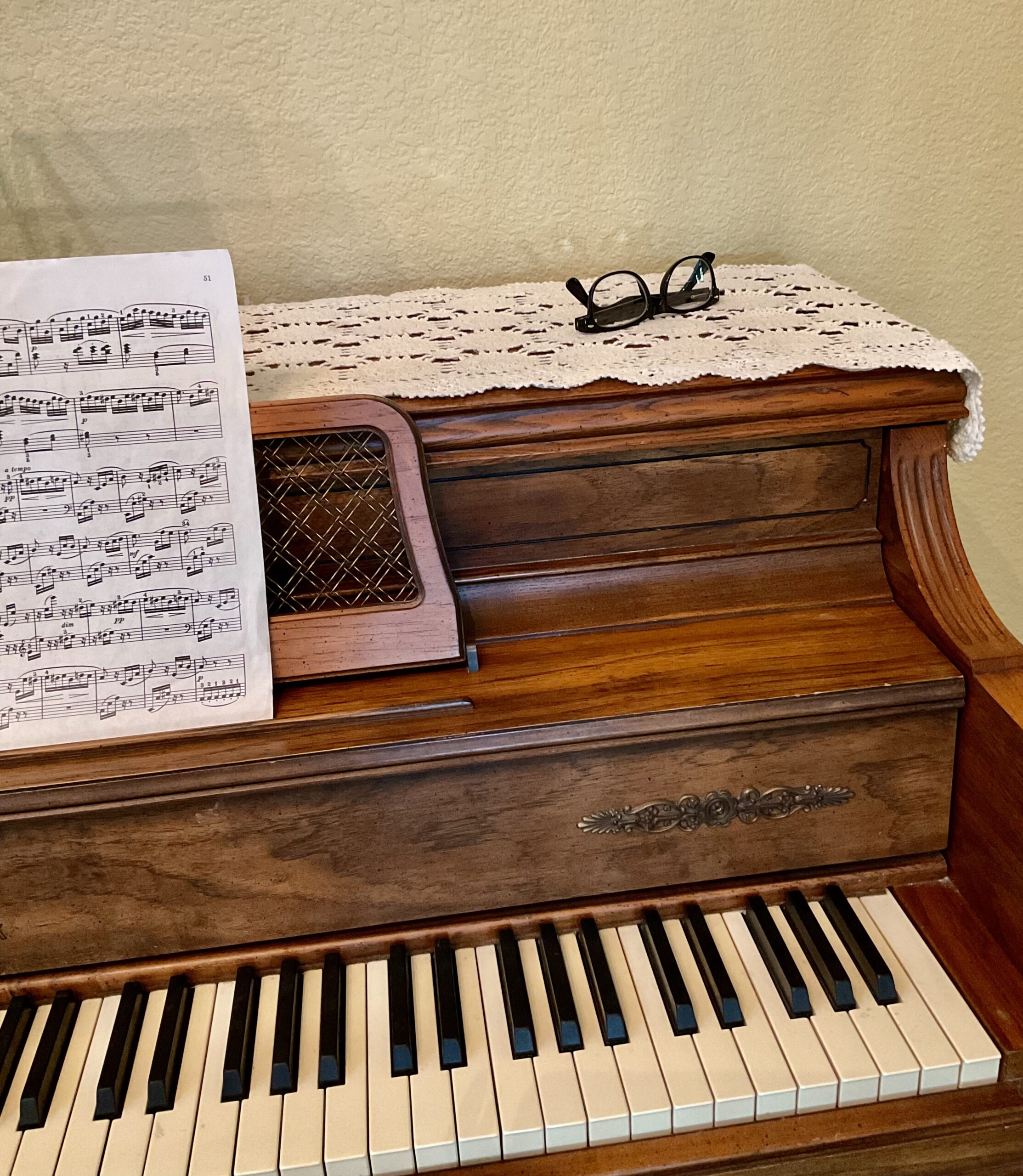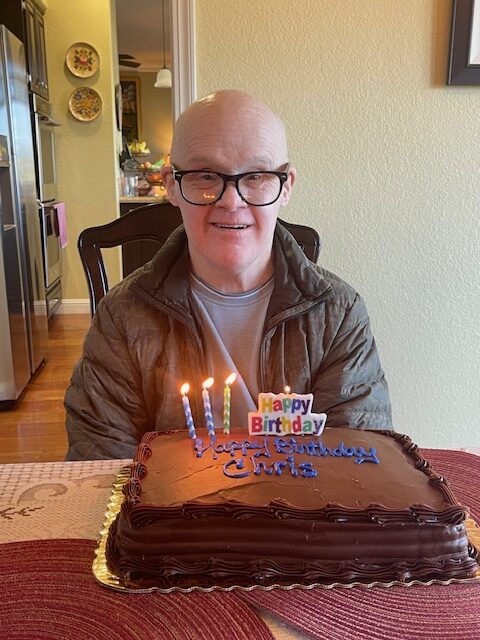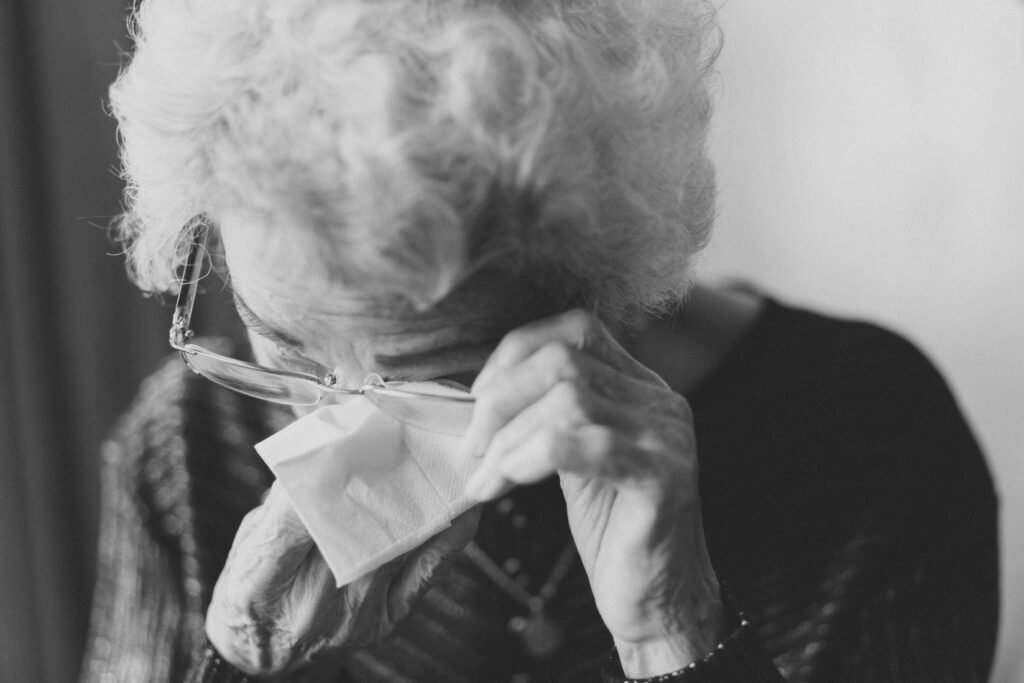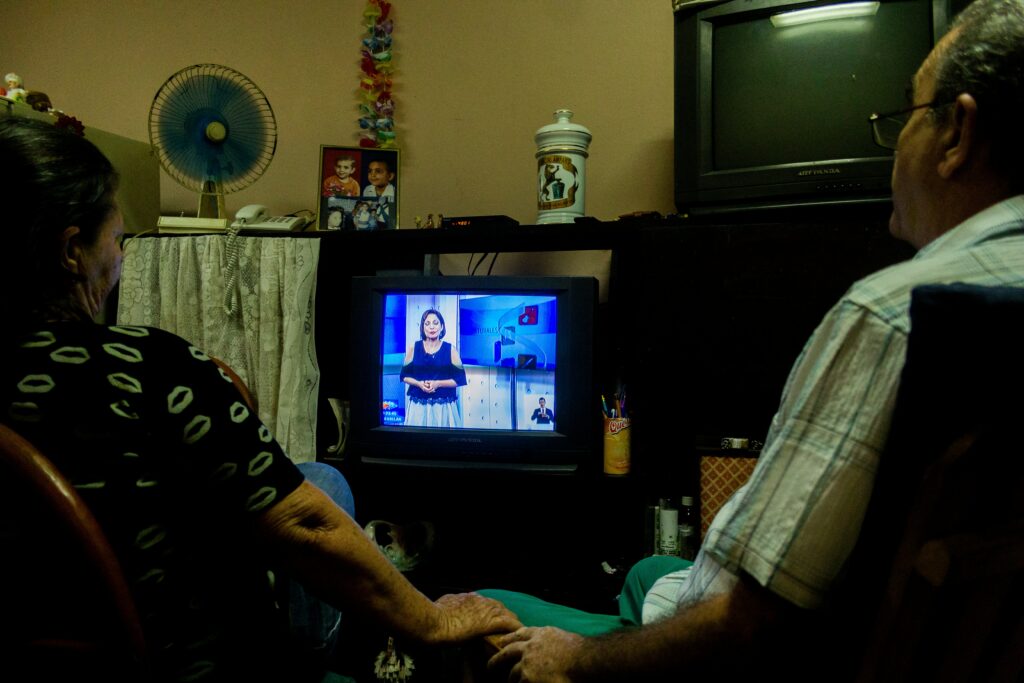August 2024
By Richard Fleming

Photo courtesy of Francesca Tosolini
Since my last post, written three months ago, I remain as confused as ever about how to approach aging with calmness and grace. Fortunately occasional small insights and micro-understandings creep up on me, offering some measure of hope I will one day understand this journey.
Aging is a funny phenomenon. I hesitate to call it weird, for reasons I hope are obvious in this election season, but it is definitely strange. One example is how our relationship to physical objects changes as we move further into seniorhood. Consider chairs. Young people don’t give much mind to chairs. I know I rarely gave them a second thought when I was young. Back then, chairs served a single and useful purpose – they allowed me to sit down. They came in handy at mealtime, when talking with friends, when going to school, and sometimes at work. But they occupied little space in my head as I tackled my activities of daily living. Chairs were simple utilitarian objects I leveraged in pursuit of specific goals. Like eating, having discussions, studying. They were easy to leave behind when I needed to stand up.
I can’t say when my relationship to chairs first began to change; the shift occurred gradually. But as I move forward through my eighth decade of life, it has become apparent that chairs play an increasingly important role in my life. Let me explain. I will start by saying that sitting does not occupy all my time. I still like to stand and move around. My wife and I periodically take a walk for exercise. We walk when delivering food for Meals on Wheels. I need to be mobile to water our plants, sweep up leaves in the yard, and try to combat the fungi attacking our rose bushes. (So far the fungi are winning this battle.)
But I have to acknowledge that nowadays, sitting comes easier and occupies more of my time than it did previouisly. Take parties for example. I attend fewer than I used to. When they do occur I usually stand up for much of the time. But at some point I start scouting the room for an available chair. While I still have pretty good stamina for standing, sitting down can be really nice. Playing with my grandkids in the yard is fun and good exercise. But sooner or later I feel compelled to mosey over to one of the yard chairs to sit for a spell. There are any number of other situations where this same phenomenon plays out.
Another thing about chairs: once I am seated, it is a bit more challenging to stand up than it was in years past. I still can arise successfully, but it is now accompanied by a squinch of pain in my thighs and knees. Without being quite aware of it, I often find I’m using my hands and arms to help push myself up. It almost feels like chairs are applying some magical force, a suction, to keep me sitting down. More than ever before, when my body is at rest, it tends to remain at rest. I tell myself not to become concerned when this happens. It is simply one of the basic principles of physics, discovered by Isaac Newton in 1687.
My comments about chairs apply equally to couches, recliners, and other devices used for seating. These objects no longer go unnoticed and unloved, dwelling in the background of my life. They have assumed more importance and significance. They facilitate me being able to live my life to the fullest. I see them. I value them. I no longer take chairs for granted.
Why am I spending time thinking about this phenomenon? I feel it illustrates how older people live in a different world than younger people. We may move through the same physical spaces, but the environment occupied by older folks is different than the one occupied by younger people. Our relationship to many physical objects changes as we age. Older people view and experience stairways differently than younger folks. When we are driving on a busy freeway, the cars darting in and out of traffic and speeding by elicit different emotions for us than for the young. Uneven sidewalks can be daunting. We engage differently with common household tools, especially hammers and anything which plugs into an electrical socket.
So, my friends, growing old is strange indeed. It is a journey of discovery, an adventure. It requires self-awareness, caution, and humility. And aging requires a high degree of luck. Every morning upon awakening I am thankful to still be walking toward the nearing horizon. And I am grateful for the seductiveness of chairs.
* * *
If you enjoyed this post, please consider subscribing to be notified of future posts. Subscriptions are free.









